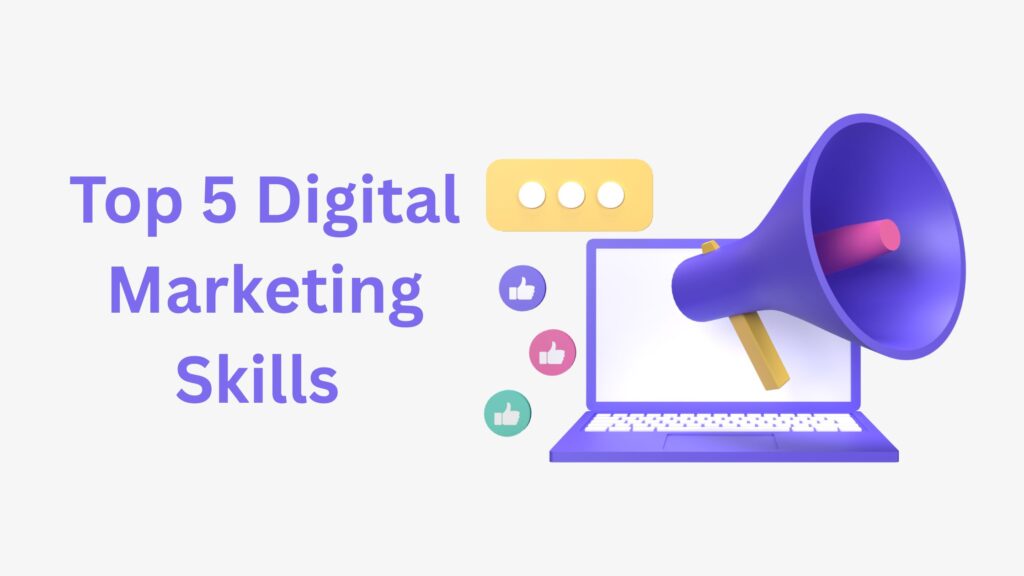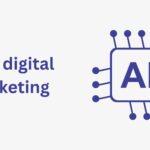Introduction
Digital marketing is an exciting, fast-evolving field that offers endless opportunities for professionals ready to adapt and grow. For beginners, mastering the right skills sets the stage for career growth and effective campaigns. In this guide, explore the top five digital marketing skills every aspiring professional should prioritize to succeed in 2025.
1. Search Engine Optimization (SEO)
Search Engine Optimization (SEO) remains the backbone of digital marketing. SEO focuses on improving website visibility in search engine results, generating organic traffic, and building brand authority. Understanding keyword research, on-page optimization, and link building will empower marketers to attract their target audience without excessive advertising budgets.
Key components of SEO include:
-
Keyword Research: Identify relevant search terms using tools like Google Keyword Planner and SEMrush.
-
On-Page Optimization: Optimize meta tags, headings, and content with targeted keywords.
-
Link Building: Secure backlinks from reputable websites to boost domain authority.
-
Technical SEO: Ensure fast load times, mobile compatibility, and a clean site structure.
-
Tracking & Analytics: Monitor results with Google Analytics for continuous improvement.
External Resource:
Learn comprehensive SEO techniques with Moz’s Beginner’s Guide to SEO.
2. Content Marketing
Content marketing is crucial for attracting, engaging, and retaining customers. By producing valuable blog posts, videos, infographics, and e-books, marketers can build trust and establish authority. Effective storytelling drives brand loyalty and conversions.
Essential aspects of content marketing:
-
Content Creation: Plan and produce original, informative articles, videos, or graphics.
-
Content Distribution: Use blogs, social platforms, and email newsletters for distribution.
-
Audience Engagement: Help solve problems and answer questions for your audience.
-
Repurposing Content: Convert existing assets into new formats to extend reach.
-
Performance Tracking: Measure success with engagement and conversion data.
External Resource:
Get content strategy tips at Content Marketing Institute.
3. Data Analytics
Data analytics turns numbers into actionable strategies, distinguishing successful marketers from guesswork-driven efforts. Data skills allow beginners to interpret site traffic, campaign results, and audience behavior, leading to smarter, data-driven decisions.
Important skills for analytics:
-
Google Analytics: Track visitors and conversions for continual improvement.
-
KPIs & Dashboards: Set benchmarks for campaign goals and monitor real-time data.
-
Competitor Analysis: Use SEMrush, Ahrefs, and other tools to evaluate competition.
-
Decision-Based Reporting: Make adjustments based on quantifiable trends.
External Resource:
Begin learning web analytics with Google Analytics Academy.
4. Social Media Marketing
With billions of global users, social media marketing presents vital opportunities for brand awareness, engagement, and lead generation. Beginners should learn to manage content calendars, schedule posts, target audiences, and analyze user interactions across platforms like Facebook, Instagram, and LinkedIn.
Core areas to develop:
-
Platform Selection: Focus on platforms best suited to your niche and audience.
-
Content Planning: Use tools like Buffer or Hootsuite for post scheduling.
-
Audience Targeting: Run ads tailored to specific demographics.
-
Analytics: Track engagement and adjust strategies accordingly.
External Resource:
Explore platform-specific guides with HubSpot’s Social Media Marketing resources.
5. Email Marketing
Email marketing delivers the highest ROI among digital channels. Crafting personalized emails, segmenting lists, and automating campaigns can help beginners nurture leads and build lasting customer relationships.
Essentials for effective email marketing:
-
List Building: Use sign-up forms and lead magnets.
-
Segmentation: Tailor messages for different audience groups.
-
Automation: Schedule follow-ups and drip campaigns using MailChimp or Constant Contact.
-
Testing & Analytics: Monitor open rates, click rates, and conversions.
External Resource:
Master email marketing strategies with Mailchimp’s Email Marketing Field Guide.
Headings Summary
-
Introduction
-
-
Search Engine Optimization (SEO)
-
-
-
Content Marketing
-
-
-
Data Analytics
-
-
-
Social Media Marketing
-
-
-
Email Marketing
-
External Linking Notes
Each section links out to authoritative guides to provide beginners with trusted resources, supporting Google’s guidelines for helpful, expert content.
Google Guidelines and Ranking
-
Unique, value-driven content aimed at beginners.
-
Use active voice and clear formatting.
-
Internal section structure with listicles and accessible headings.
-
Outbound links to authoritative sites.
-
Meta tags optimized for target keywords.
-
Practical guidance and clear calls to action.
Mastering these five skills gives beginners a solid foundation in digital marketing while also preparing them for advanced opportunities. Educational links, actionable tips, and on-page best practices help this article rank well and avoid Google penalties.


